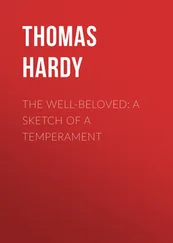“Nonsense, open them now. You ought to learn a little of such matters. A young lady of education should not be ignorant of money affairs altogether. Suppose you should be left a widow some day, with your husband’s title-deeds and investments thrown upon your hands—”
“Don’t say that, father—title-deeds; it sounds so vain!”
“It does not. Come to that, I have title-deeds myself. There, that piece of parchment represents houses in Sherton Abbas.”
“Yes, but—” She hesitated, looked at the fire, and went on in a low voice: “If what has been arranged about me should come to anything, my sphere will be quite a middling one.”
“Your sphere ought not to be middling,” he exclaimed, not in passion, but in earnest conviction. “You said you never felt more at home, more in your element, anywhere than you did that afternoon with Mrs. Charmond, when she showed you her house and all her knick-knacks, and made you stay to tea so nicely in her drawing-room—surely you did!”
“Yes, I did say so,” admitted Grace.
“Was it true?”
“Yes, I felt so at the time. The feeling is less strong now, perhaps.”
“Ah! Now, though you don’t see it, your feeling at the time was the right one, because your mind and body were just in full and fresh cultivation, so that going there with her was like meeting like. Since then you’ve been biding with us, and have fallen back a little, and so you don’t feel your place so strongly. Now, do as I tell ye, and look over these papers and see what you’ll be worth some day. For they’ll all be yours, you know; who have I got to leave ’em to but you? Perhaps when your education is backed up by what these papers represent, and that backed up by another such a set and their owner, men such as that fellow was this morning may think you a little more than a buffer’s girl.”
So she did as commanded, and opened each of the folded representatives of hard cash that her father put before her. To sow in her heart cravings for social position was obviously his strong desire, though in direct antagonism to a better feeling which had hitherto prevailed with him, and had, indeed, only succumbed that morning during the ramble.
She wished that she was not his worldly hope; the responsibility of such a position was too great. She had made it for herself mainly by her appearance and attractive behavior to him since her return. “If I had only come home in a shabby dress, and tried to speak roughly, this might not have happened,” she thought. She deplored less the fact than the sad possibilities that might lie hidden therein.
Her father then insisted upon her looking over his checkbook and reading the counterfoils. This, also, she obediently did, and at last came to two or three which had been drawn to defray some of the late expenses of her clothes, board, and education.
“I, too, cost a good deal, like the horses and wagons and corn,” she said, looking up sorrily.
“I didn’t want you to look at those; I merely meant to give you an idea of my investment transactions. But if you do cost as much as they, never mind. You’ll yield a better return.”
“Don’t think of me like that!” she begged. “A mere chattel.”
“A what? Oh, a dictionary word. Well, as that’s in your line I don’t forbid it, even if it tells against me,” he said, good-humoredly. And he looked her proudly up and down.
A few minutes later Grammer Oliver came to tell them that supper was ready, and in giving the information she added, incidentally, “So we shall soon lose the mistress of Hintock House for some time, I hear, Maister Melbury. Yes, she’s going off to foreign parts to-morrow, for the rest of the winter months; and be-chok’d if I don’t wish I could do the same, for my wynd-pipe is furred like a flue.”
When the old woman had left the room, Melbury turned to his daughter and said, “So, Grace, you’ve lost your new friend, and your chance of keeping her company and writing her travels is quite gone from ye!”
Grace said nothing.
“Now,” he went on, emphatically, “’tis Winterborne’s affair has done this. Oh yes, ’tis. So let me say one word. Promise me that you will not meet him again without my knowledge.”
“I never do meet him, father, either without your knowledge or with it.”
“So much the better. I don’t like the look of this at all. And I say it not out of harshness to him, poor fellow, but out of tenderness to you. For how could a woman, brought up delicately as you have been, bear the roughness of a life with him?”
She sighed; it was a sigh of sympathy with Giles, complicated by a sense of the intractability of circumstances.
At that same hour, and almost at that same minute, there was a conversation about Winterborne in progress in the village street, opposite Mr. Melbury’s gates, where Timothy Tangs the elder and Robert Creedle had accidentally met.
The sawyer was asking Creedle if he had heard what was all over the parish, the skin of his face being drawn two ways on the matter—towards brightness in respect of it as news, and towards concern in respect of it as circumstance.
“Why, that poor little lonesome thing, Marty South, is likely to lose her father. He was almost well, but is much worse again. A man all skin and grief he ever were, and if he leave Little Hintock for a better land, won’t it make some difference to your Maister Winterborne, neighbor Creedle?”
“Can I be a prophet in Israel?” said Creedle. “Won’t it! I was only shaping of such a thing yesterday in my poor, long-seeing way, and all the work of the house upon my one shoulders! You know what it means? It is upon John South’s life that all Mr. Winterborne’s houses hang. If so be South die, and so make his decease, thereupon the law is that the houses fall without the least chance of absolution into her hands at the House. I told him so; but the words of the faithful be only as wind!”
The news was true. The life—the one fragile life—that had been used as a measuring-tape of time by law, was in danger of being frayed away. It was the last of a group of lives which had served this purpose, at the end of whose breathings the small homestead occupied by South himself, the larger one of Giles Winterborne, and half a dozen others that had been in the possession of various Hintock village families for the previous hundred years, and were now Winterborne’s, would fall in and become part of the encompassing estate.
Yet a short two months earlier Marty’s father, aged fifty-five years, though something of a fidgety, anxious being, would have been looked on as a man whose existence was so far removed from hazardous as any in the parish, and as bidding fair to be prolonged for another quarter of a century.
Winterborne walked up and down his garden next day thinking of the contingency. The sense that the paths he was pacing, the cabbage-plots, the apple-trees, his dwelling, cider-cellar, wring-house, stables, and weathercock, were all slipping away over his head and beneath his feet, as if they were painted on a magic-lantern slide, was curious. In spite of John South’s late indisposition he had not anticipated danger. To inquire concerning his health had been to show less sympathy than to remain silent, considering the material interest he possessed in the woodman’s life, and he had, accordingly, made a point of avoiding Marty’s house.
While he was here in the garden somebody came to fetch him. It was Marty herself, and she showed her distress by her unconsciousness of a cropped poll.
“Father is still so much troubled in his mind about that tree,” she said. “You know the tree I mean, Mr. Winterborne? the tall one in front of the house, that he thinks will blow down and kill us. Can you come and see if you can persuade him out of his notion? I can do nothing.”
Читать дальше












